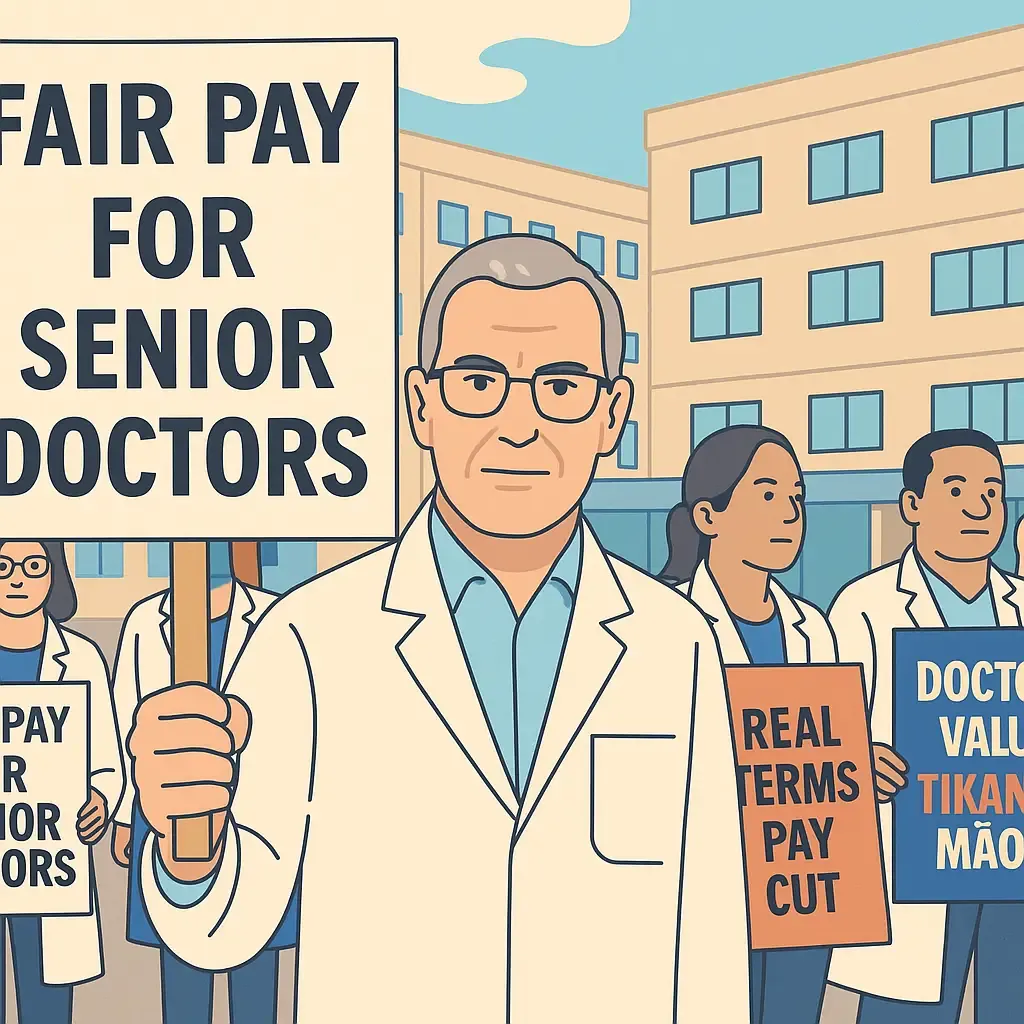NZ Senior Doctors Strike: Why Pay Talks Failed (Explained)

More than 5,000 senior doctors are set to walk off the job for 24 hours on 1 May 2025 after last-ditch mediation between Te Whatu Ora — Health NZ and the Association of Salaried Medical Specialists (ASMS) collapsed. About 4,300 patient procedures will be postponed, making this the largest medical strike in New Zealand’s history.
This post breaks down what went wrong in the pay talks, what services will be affected and what the dispute means for taxpayers and the wider economy.
Why Are Senior Doctors Striking?
The union wants a 12 % pay rise to keep pace with inflation and stem an exodus of talent. Health NZ’s most recent offer, however, worked out to less than 1 % on average for most specialists, according to ASMS. In real-terms, that's a pay cut.
What Was in the ‘Failed’ Pay Offer?
- First-year specialist: + $17,700 (9.5 %) base-salary jump plus another 6 % next year.
- Second-year specialist: + $11,800 (6.2 %) this year, + 6 % next year.
- All others: 3 % over two years + one-off $8,000 lump sum.
- Extra $25k two-year incentive for doctors who move to hard-to-staff regions.
ASMS says the headline numbers look good but most members already sit at the top of the scale, so the offer delivers “0.77 % annualised growth” for them.
What Happens on 1 May?
Hospitals and emergency departments will stay open. Both sides have agreed on life-preserving services. But elective surgeries, follow-up consultations and some radiology sessions will be deferred. Health NZ forecasts 4,300 delays, with knock-on effects for wait-lists already stretched by staffing shortages.
Economic & Budget Implications
New Zealand’s health wage bill sits north of $5 billion annually. Even a mid-single-digit lift for senior doctors would add tens of millions a year to operational spending — money Treasury did not earmark in the latest Budget. Yet failure to recruit and retain specialists means higher spend on locums (temporary contractors often paid a premium) and longer patient queues, both of which carry hidden fiscal costs.
From a macro perspective, a concession here could pressure other public-sector wage rounds, from nurses to educators, complicating the Government’s stated goal of holding operating-expense growth below nominal GDP growth in 2025/26.
Where Could a Deal Land?
Health NZ has applied for Employment Relations Authority facilitation, a semi-formal process that can recommend middle-ground terms. Political pressure will mount as postponed procedures become headline news. A compromise of 4–5 % per year, back-dated, paired with staffing-gap incentives, is plausible — broadly in line with settlements across other Crown entities in 2024/25.
Frequently Asked Questions (FAQ)
- Q. Will my surgery definitely be cancelled?
A. If it is non-urgent and scheduled for 1 May, expect a postponement notice. Health NZ aims to re-book within 6-8 weeks. - Q. Do striking doctors lose their pay for the day?
A. Yes. Union members forgo pay during strike hours unless an employer-specific agreement states otherwise. - Q. Could the strike extend beyond 24 hours?
A. ASMS has not ruled out further action if talks remain stalled, but any extension requires a fresh ballot and 14-days’ notice.
Kiwi Money Matters is written and maintained by a New Zealand-based writer with hands-on experience in finance and accounting since 2015.
All posts are personally researched, written to ensure clarity and trustworthiness for everyday Kiwis.

Comments
Post a Comment